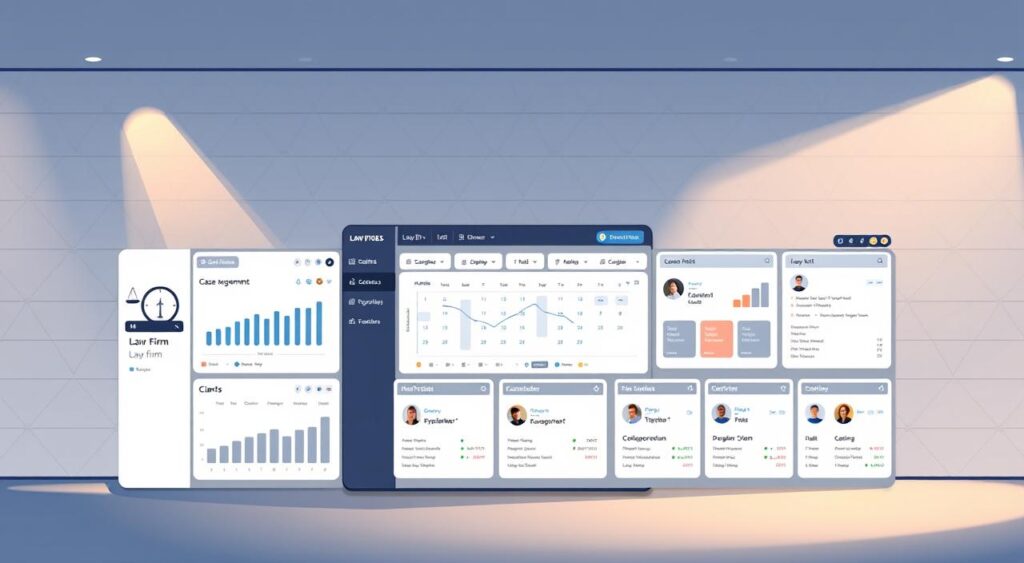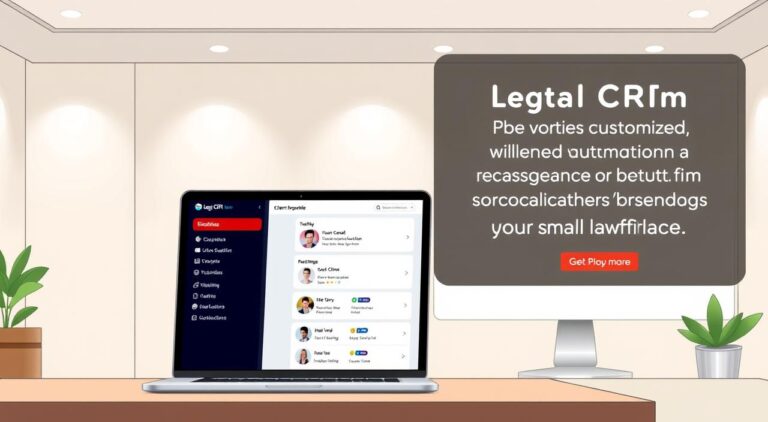Case Management vs Legal Practice Software Review
Managing a law firm efficiently is crucial in today’s competitive legal landscape. It’s not just about practicing law; it’s about staying organized, communicating clearly, and making the best use of your time.
The terms “practice management” and “case management” are often used interchangeably, but they serve different purposes. Case management software focuses on the details of each matter, while practice management software encompasses a broader range of functions, including firm finances, scheduling, and communication.
Choosing the right management software is vital for law firms to succeed. This article will explore the differences between case management and legal practice management software, helping you make an informed decision.
Key Takeaways
- Understand the fundamental differences between case management and legal practice management software.
- Learn how each type of software serves different aspects of running a successful law practice.
- Discover key features and benefits of each software type.
- Assess which type of software aligns with your firm’s unique requirements.
- Make an informed decision about which solution best fits your law firm’s specific needs.
Understanding the Difference: Case Management vs Legal Practice Software
Understanding the distinction between case management software and legal practice management software is vital for law firms looking to invest in the right technology. While both solutions are designed to streamline law firm operations, they serve different purposes and offer distinct functionalities.

What is Case Management Software?
Case management software is a digital version of the traditional case file, focusing on organizing all information related to specific legal matters or disputes. It primarily serves as litigation support, helping attorneys track important facts, witnesses, evidence, deadlines, and other case-specific details.
What is Legal Practice Management Software?
Legal practice management software encompasses a broader scope, covering the entire business operation of a law firm beyond just case handling. It includes features such as automated workflow generation, internal communication, time tracking, billing, and trust account management, making it a more comprehensive solution that typically includes case management functionality as one component.
The key difference lies in their scope and functionality. While case management software is focused on managing individual cases, legal practice management software is designed to manage the overall practice of a law firm, making it a more extensive and integrated solution.
Key Features Comparison
The features and functionalities of case management software and legal practice management software vary significantly. Understanding these differences is crucial for law firms to choose the right solution for their needs.
Core Features of Case Management Software
Case management software is designed to help law firms manage the lifecycle of a legal case. Key features include:
Document Management
Efficient document management is critical for law firms, as they handle numerous documents daily. A good case management system should enable secure creation, storage, retrieval, and sharing of documents.
Matter Organization
Matter organization features help track all aspects of a legal case, including relevant facts, witnesses, evidence, and deadlines, in a centralized system.
Calendar Management
Calendar management functionality allows firms to track court dates, filing deadlines, and other time-sensitive case requirements, ensuring that critical dates are not missed.
Expanded Features of Legal Practice Management Software
Legal practice management software goes beyond basic case management by incorporating additional features that support the overall management of a law firm.
Billing and Financial Management
Billing and financial management features enable accurate time tracking, invoicing, trust accounting, and financial reporting, streamlining the firm’s financial operations.
Client Relationship Management
Client relationship management capabilities allow firms to track client interactions, manage prospects, and maintain comprehensive client records across multiple matters.
Workflow Automation
Workflow automation features help streamline repetitive tasks, standardize processes, and improve overall firm efficiency through automated workflows.
By comparing these features, law firms can determine which type of software best suits their needs and enhances their operational efficiency.
Benefits and Limitations
When evaluating case management and legal practice management software, it’s crucial to understand their respective benefits and limitations. Law firms need to assess their specific needs and determine which type of software will best support their operations.
Advantages of Case Management Software
Case management software offers several key advantages, particularly for litigation-focused practices. It helps firms keep all case details organized, including important witnesses, relevant issues, key pieces of evidence, and legal deadlines. The benefits include:
- Improved organization of case details
- Better collaboration among legal teams
- Reduced risk of missing critical deadlines
- Enhanced case strategy development
As noted by legal professionals, case management software is particularly beneficial for firms handling complex cases across multiple matters. However, it may lack broader business management tools needed to run a complete law practice.

Advantages of Legal Practice Management Software
Legal practice management software provides comprehensive business oversight, integrated financial management, and improved client communication. The advantages include:
- Comprehensive business oversight
- Integrated financial management
- Improved client communication
- Ability to analyze firm performance across all operational areas
This type of software is beneficial for firms looking to scale their operations by providing standardized processes and better business intelligence. However, it may come with higher costs and steeper learning curves compared to simpler case management solutions.
Top Solutions in the US Market
The US legal technology market offers a diverse range of software solutions for law firms, with various options available for case and practice management. Law firms can choose from a variety of platforms that cater to different practice areas and sizes.
Leading Case Management Solutions
Specialized case management solutions are designed to streamline litigation support and case organization. These systems offer advanced features such as document management, evidence tracking, and case analysis capabilities.
Some of the leading case management solutions in the US market include platforms that offer robust document management and evidence tracking. These solutions are particularly beneficial for law firms handling complex litigation cases.
Leading Practice Management Solutions
Comprehensive practice management solutions integrate case management with broader business management functionality, offering law firms a holistic platform to manage their operations. Clio, MyCase, and Filevine are prominent players in this space.
These practice management solutions cater to law firms of various sizes, offering features such as client communication, task management, and document management. By adopting these platforms, law firms can enhance their operational efficiency and client service.
How to Choose the Right Software for Your Law Firm
Choosing the right law firm software requires a thorough understanding of your firm’s specific needs and operational challenges. According to legal experts, the best software for your firm depends on how you work.
Assessing Your Firm’s Specific Needs
To determine the most suitable software, law firms should evaluate their practice type, size, growth plans, and current pain points in their workflow. This assessment will help identify whether you need primarily case-focused tools or comprehensive practice management capabilities.
Considerations for Implementation and Adoption
When selecting software, consider factors such as setup requirements, training needs, and integration capabilities with existing systems. Ensuring attorney and staff buy-in is crucial for successful adoption. As noted by industry experts, “A good Practice Management Software (PMS) should make it easy to create, store, find, and share documents securely.” 
By carefully evaluating these factors and considering both immediate needs and long-term scalability, law firms can make an informed decision when choosing between case management and legal practice management software.
Conclusion: Making the Right Investment for Your Legal Practice
Understanding the distinction between case management and legal practice management software is crucial for law firms to make informed investment decisions. While case management software excels at organizing litigation details, practice management solutions offer broader business management capabilities.
Firms may start with case management and transition to practice management as they grow. Successful implementation requires commitment to training and process refinement. Investing in the right legal technology is key to current efficiency and future growth.
The right software choice can significantly impact client satisfaction, attorney work-life balance, and ultimately the firm’s profitability.






